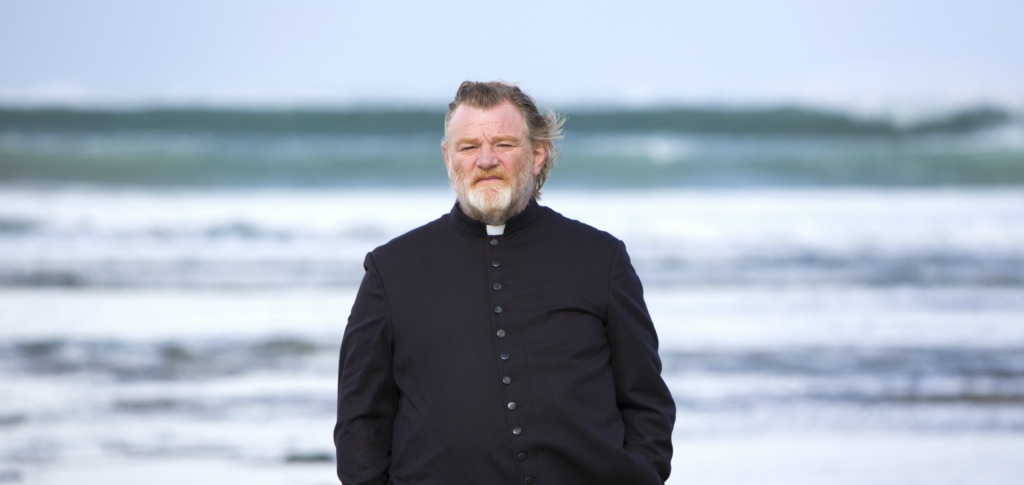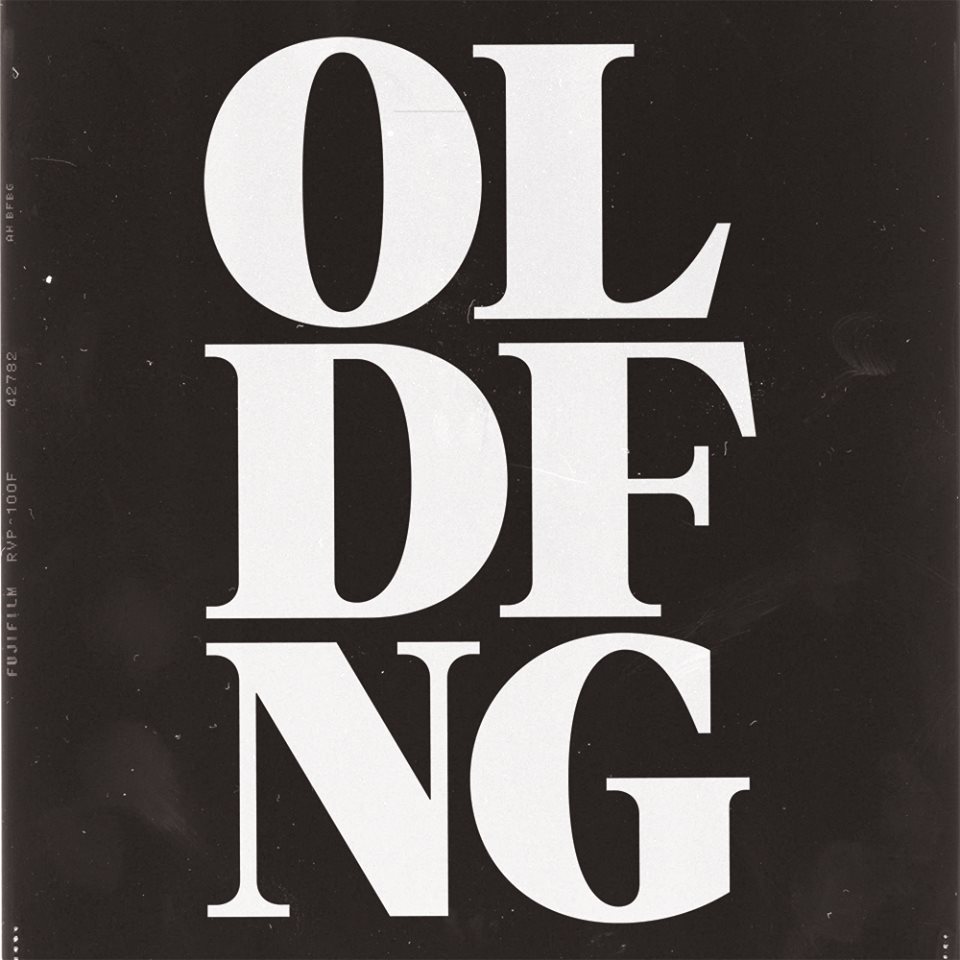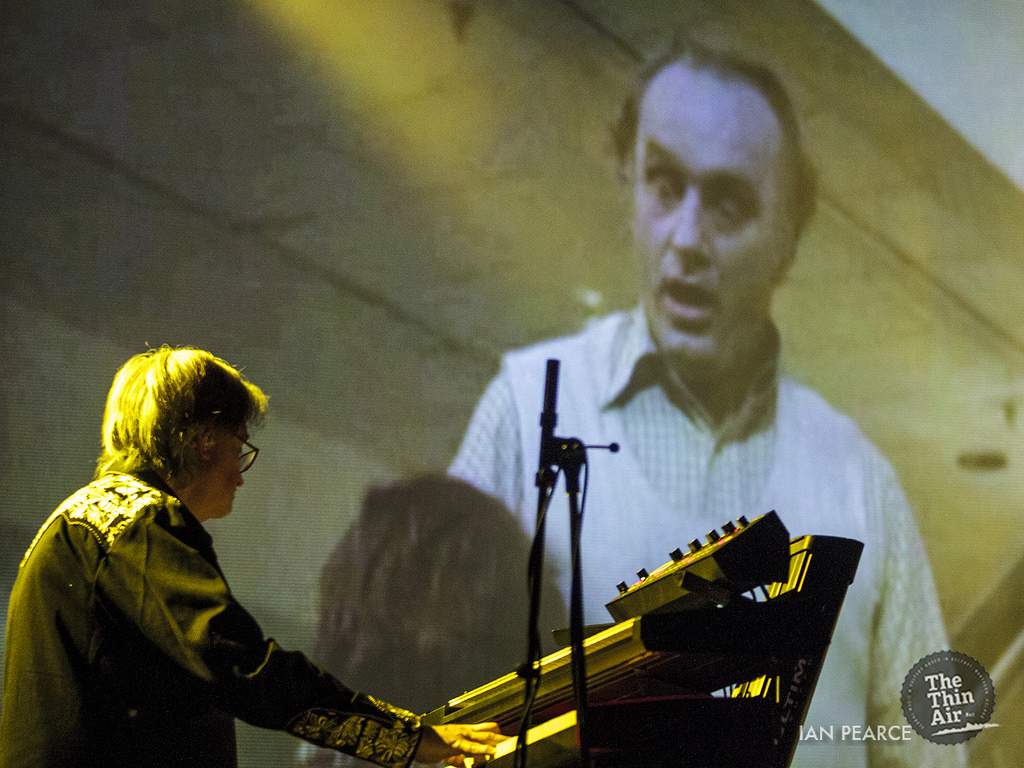Calvary is the second feature film from John Michael McDonagh, following on from the very successful The Guard. Unlike his brother Martin’s second feature, the messy, dated Seven Psychopaths, John Michael has followed his funny (though somewhat flimsy) first film with a darker, much more bold tale of the clash between faith and doubt in modern-day Ireland. Calvary is interesting for its contemporary significance but disappointing for its lack of originality.
Father James (Brendan Gleeson) is threatened by an unknown man in his confession box – the man claims that he will kill James in one week, not because he is a bad priest, but because he is a good priest and that would make it more noteworthy. Over the next week, James continues with his job, offering his services in a town full of doubt and anger. Practically everyone in the town (including Chris O’Dowd, Dylan Moran, Orla O’Rourke, Killian Scott, Aidan Gillen, Pat Shortt, M. Emmet Walsh and Isaach de Bankolé) has lost their faith, actively hates the Catholic Church for their crimes and resents Father James for his confidence and integrity. Father James’ daughter Fiona (Kelly Reilly) also returns from London with her own problems.
The first thing to know about Calvary is that, despite its marketing, its casting and the McDonagh brand, it is not a comedy. This is not to say that it is unfunny, since there are a few laughs scattered throughout, but that it is a dark morality tale with some jokes thrown in to, as McDonagh calls it, sugar the pill – more on this later. Calvary is instead a film about a post-Church Ireland, a country of, as the film suggests, lost people who still need their Church but who can no longer trust it. The figure of the priest is no longer a trusted figure, more an anachronistic and slightly suspicious one. Father James is one of the good ones – a compassionate and committed man who feels that he has a valuable role to play even if no one else seems to agree. There is a great scene towards the end of the film in which Father James, about to flee for Dublin, spots two airline baggage carriers leaning casually on a coffin unaware that the dead man’s wife is in view.
Father James’ decision is conveyed without words, only Gleeson’s facial expression (in what is overall a fantastic performance) reveals what Father James is thinking – that there is still a place in Ireland for someone willing to preach about compassion and about caring for one another. This being a McDonagh film, however, things are not quite so schematic – Father James is a man of integrity but he is not entirely pure and the other people in the town often do have genuine criticisms. Lynch (Shortt) wonders why he never criticised the actions of the bankers from his pulpit, while Jack (O’Dowd) criticises his emotional remove from stories of Catholic abuse. One great scene late in the film in which Father James comes across a young girl on holiday on a lonely road may even force you to question how much you trust him.Calvary then is an interesting film about the state of the Church in Ireland today, a rare film that reveals the value of such an institution while also starkly revealing many of its inadequacies.
That said, the film is powerfully redundant, wearing its influences much too clearly on its sleeve. The films of Robert Bresson are clearly evoked, with many of the elements, ideas and characters lifted from Diary of a Country Priest and a final scene taken entirely fromPickpocket – albeit via American Gigolo in its use of a modern prison visiting room. The film’s own gigolo character, Leo (Owen Sharpe), endlessly impersonates James Cagney for no apparent reason and the set-up recalls High Noon. Meanwhile, the drama escalates exactly like Vinterberg’s The Hunt and John Michael McDonagh lifts several identical shots, sequences and lines of dialogue, actors and characters from his own unenlightening 2000 short The Second Death. As in The Guard, the only two characters who seem to understand Gleeson’s character is a young boy played by Michael Og Lane and a recently bereaved widow (this time played by Marie-Josée Croze). The film is also way too self-aware, with talk of ‘startling opening lines’, ‘third act revelations’ and Gillen’s atheist doctor all too aware that he is the ‘clichéd character’ with not many ‘good lines.’ For all the seriousness of its themes and the honesty in their treatment – the film does after all have the courage of its convictions and it does not cheat – it ends up feeling much too indebted to other films.
The other problem with Calvary, particularly if it reminds one of the films of Bresson, is that it lacks the rigour of those films. McDonagh casts actors known for comedy and allows them to play eccentric characters and awkwardly included jokes to sweeten the pill. In a way, then, the film is slightly restrained, as if McDonagh is afraid of making it too dark, too disturbing. It would suggest that McDonagh likes the ideas of other filmmakers but is afraid of their conclusions, their unabashed intellectualism and their often strictly spare aesthetics. McDonagh photographs Gleeson dressed as a priest standing head bowed in front of a cross on a bare white wall, but it seems to be only a gesture, a stylistic nod to another filmmaker rather than anything particularly significant to the film at hand. And for all of McDonagh’s talk of Bresson’s transcendental style, he seems to feel the need to puncture similarly redemptive and spiritual moments with emotive score and floating camerawork. You are left wondering how sincere a film is Calvary. Did McDonagh start with his themes or did he self-consciously set out to make a ‘masterpiece’? Is Calvary then inspired by the questions and themes of Pickpocket or is it just inspired by its acclaim?
Calvary is, at heart, a modern, and more specifically Irish, retelling of Bresson’s Diary of a Country Priest but told via Quentin Tarantino’s somewhat vacuous style of surface imitation. Calvary is a bold and interesting film but it is often hard to tell how many of his own ideas McDonagh is really using – and of those how many were lifted from The Second Death and The Guard. Calvary is an interesting mood piece and a fascinating examination of the state of the Church and of faith in Ireland today, but it really needs some of its own ideas. Matthew McKernan







